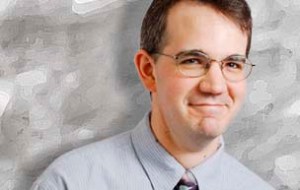Everyone can be replaced. So says the voice in our head, although I’m convinced that’s a lie our parents, teachers and employers told us to keep us humble.
Having read and written this week’s headlines, I’m even less inclined to believe it now.
In the space of five days, Maine basketball lost two giants when Bob Brown and Jim Bessey quietly and humbly — to know them was to know they would do it no other way — announced their retirements.
Their lives go on. Given the consuming, year-round nature of the sport, perhaps we could say those lives are beginning in earnest, much to the certain delight of their wives and a combined seven children and 18 grandkids.
Cheverus and Mt. Blue basketball will go on and will continue to prosper. What the two departing bosses worked so tirelessly to build cannot be dissolved in a day or a year or a decade. Two lucky (unlucky?) somebodies will lace up those giant shoes, pace the sidelines in them and likely taste success.
But replace? In this era of a revolving door at the entrance and exit to a profession that the inmates increasingly are running, forget about it.
You do not replace 98 — no typo — years of experience and institutional memory.
Pick nine random guys outfitted with a whistle and wind pants, combine their career achievements and you are unlikely to even sniff Brown and Bessey’s combined 1,097 high school varsity and college victories.
Wins and championships remain a secondary measuring stick at this level of athletics. What the two men’s schools and communities and the game itself will miss most are their contributions as father figures; their ability to mold wide-eyes freshman boys into square-jawed senior men, fit to be good fathers or soldiers or accountants or teachers or coaches.
They did it with different styles. Brown had a certain coaching wanderlust, almost always molding each program into an unqualified winner before moving on.
He was no opportunistic Phil Jackson or John Calipari, however. Brown took struggling entities and transformed them into title contenders in short order.
It’s easy to forget that the Stags, now a powerhouse perennially derided by the haters for “recruiting,” endured three straight losing seasons before Brown arrived. His record in 11 years at the Jesuit school: 203-29, eight conference titles, four regional crowns and two state championships.
Bessey arrived at Farmington High School in 1966. With the exception of four years in exile at Madison, he never left. And his influence never waned.
Three of his earliest players — Gavin Kane, Jeff Hart and Ken Marks — eventually joined him in the ranks of Maine’s legendary coaches.
The star player in the season at the chronological center of Bessey’s coaching career, Mike Adams, was the first Mr. Maine Basketball in 1990 and has coached Edward Little into one of the state’s model programs.
In his final season, Bessey guided Mt. Blue to the Eastern Class A championship game and his starting big man, Cam Sennick, was a finalist for the state’s top individual prize.
Brown was the stern high school coach from central casting: Hands in pockets, with a yell authoritative enough to reverberate in the chest of players and officials alike. Bessey mastered the sly grin and the one-liner, and no win at Mt. Blue was truly a big one unless the coach was jumping up-and-down on folding chairs and celebrating with the student section.
They proved that there is more than one way to get this most thankless of jobs done. Each earned respect and then lifelong devotion from his players, demonstrating that the process and the journey far outweigh the value of whatever medallions and ribbons get passed out at tourney’s end.
Sad to see two men who “get it” in such a tangible way and are still getting results choose to get out, although they owe us nothing.
Sadder still because they’re such throwbacks, the likes of which we will never see again.
Go ahead: Ask the 23-year-old educational technician who just joined the coaching staff at your high school if he or she imagines working in that capacity 50 years from now. Then prepare for the burst of laughter.
Coaches don’t have a long shelf life in this era. Many leave to fulfill their professional aspirations and become administrators. The ones who stick around weigh the stress of aggressive parents, brutal hours and family time sacrificed and decide it isn’t worth the headaches.
There are a hundred reasons to give up on coaching. But the towns and cities blessed by Bob Brown and Jim Bessey’s presence through two generations can think of hundreds more reasons — wins, priceless memories and transformed lives — why they’re thankful those guys didn’t.
And that kind of impact, my friends, is irreplaceable.
Kalle Oakes is a staff columnist. His email is [email protected].

Comments are no longer available on this story